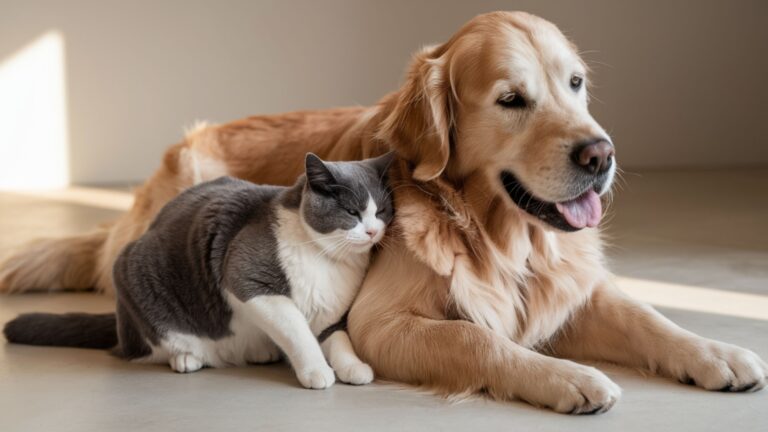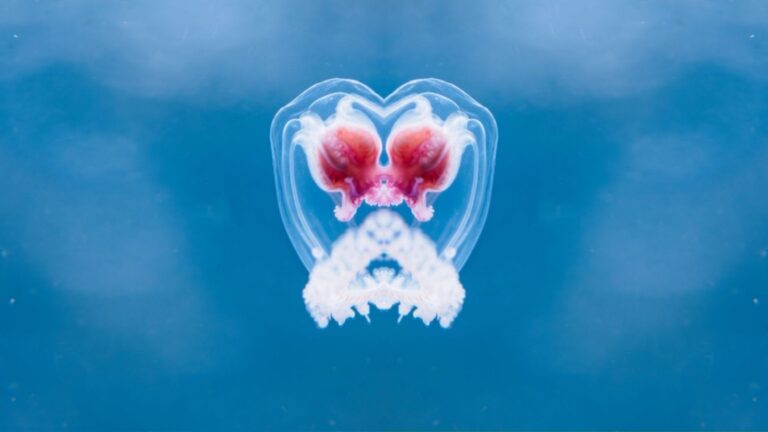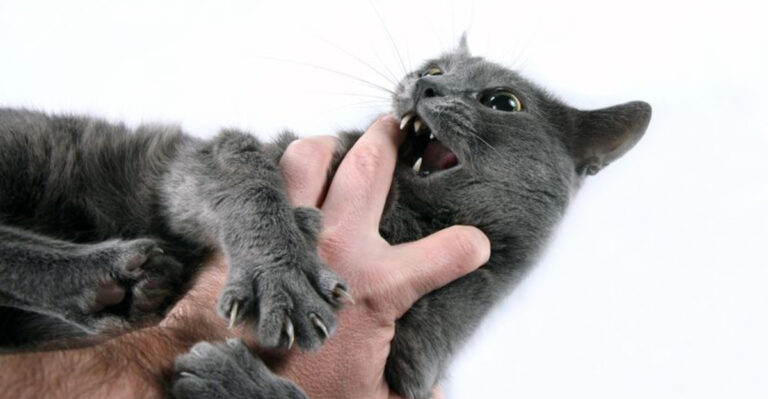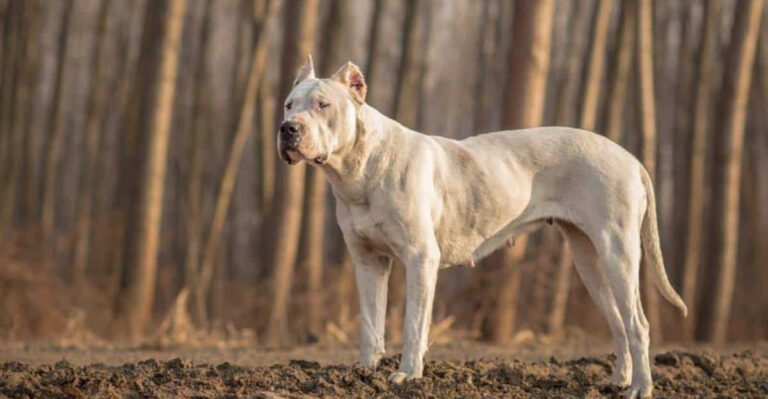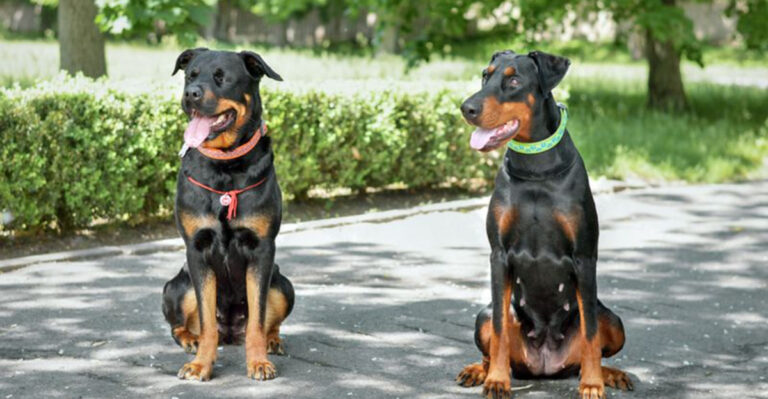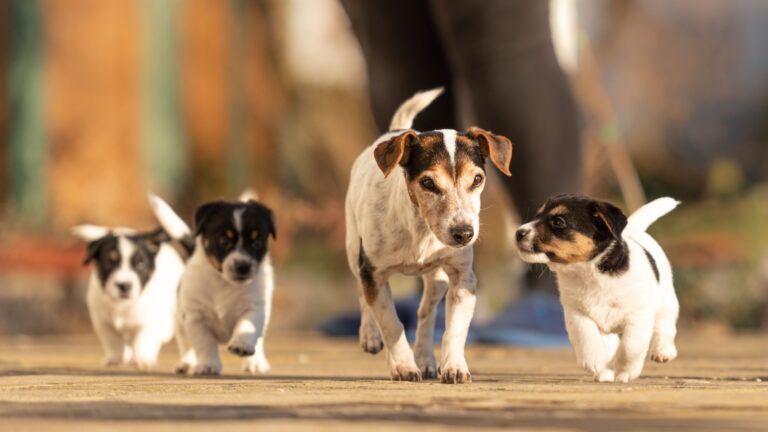14 Dog Breeds You Should Never Leave Outside In The Cold
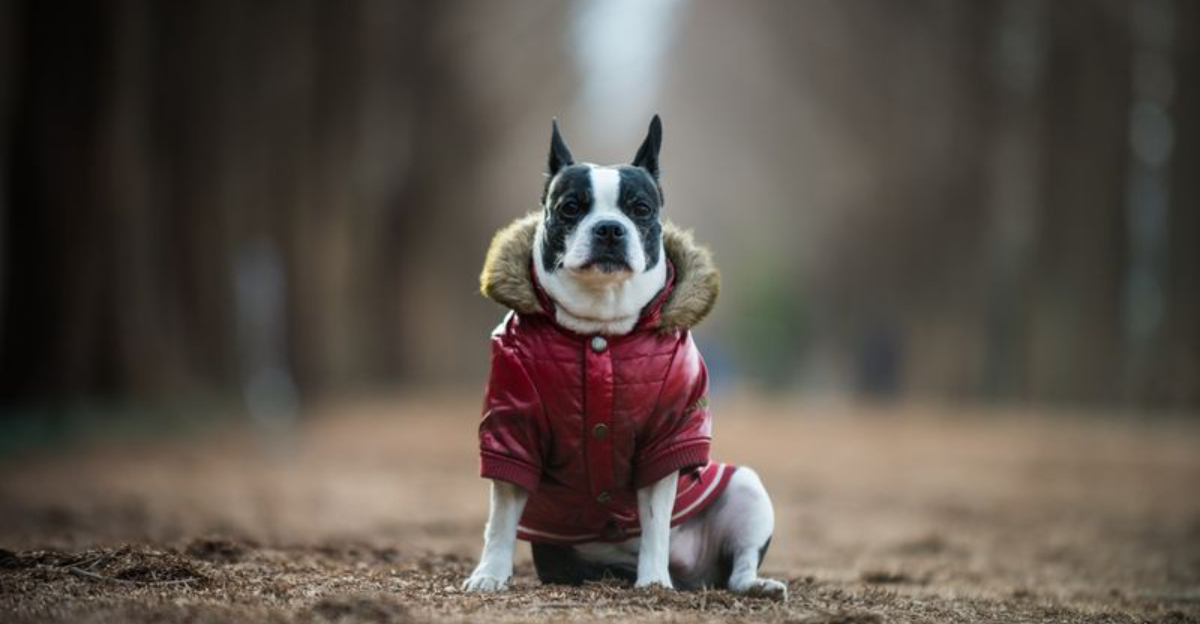
Winter’s icy grip can be dangerous for our four-legged friends. While some dogs thrive in snowy conditions with their thick double coats, others simply aren’t built to handle freezing temperatures.
Knowing which breeds are vulnerable to cold weather isn’t just helpful – it could save your pup’s life during those bitter winter months.
1. Chihuahuas: Tiny Bodies, Big Chills
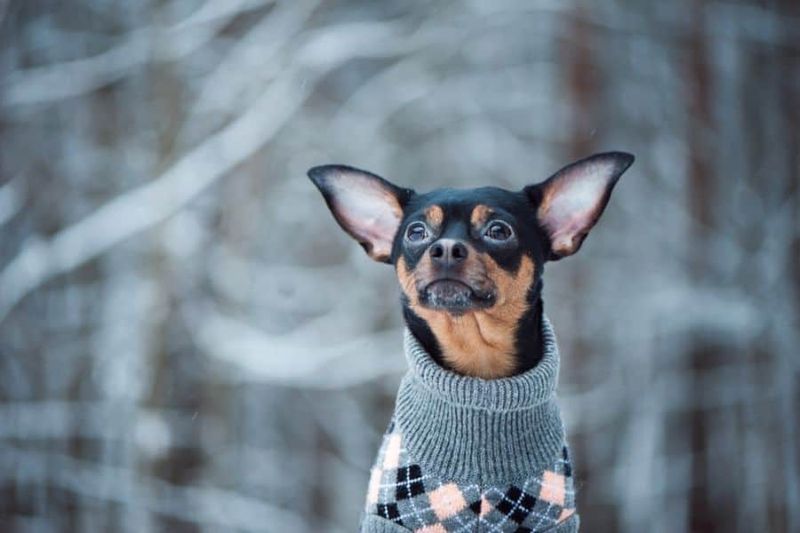
Imagine wearing a thin t-shirt in a snowstorm – that’s basically a Chihuahua’s experience in cold weather. Their tiny bodies lose heat rapidly, and their minimal body fat offers little insulation against winter’s bite.
Many shiver even in mildly cool temperatures. These Mexican natives evolved for desert heat, not frosty mornings, making them especially vulnerable when thermometers drop.
2. Greyhounds: Speed Demons With Zero Insulation
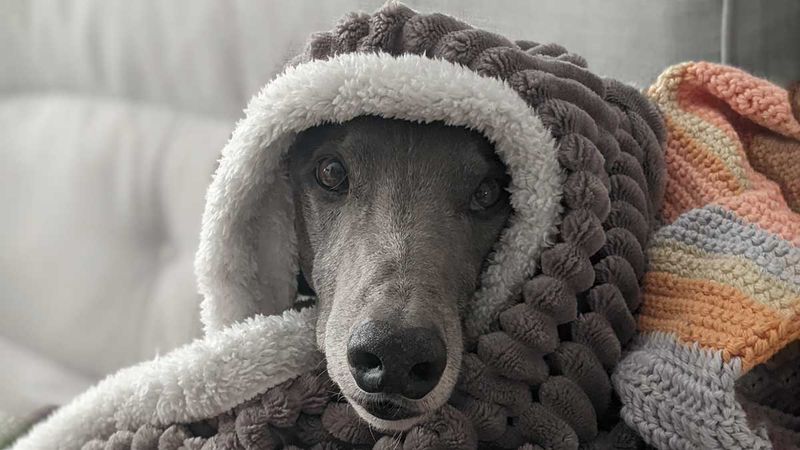
Built for the racetrack, not the snow bank! Greyhounds have almost no body fat and their short, thin coats provide minimal protection from chilly conditions.
Their lanky bodies with exposed bellies make them particularly susceptible to cold. Despite their athletic prowess, these elegant speedsters need cozy sweaters and limited outdoor time when temperatures plummet.
3. Chinese Crested: Nature’s Winter Fashion Disaster
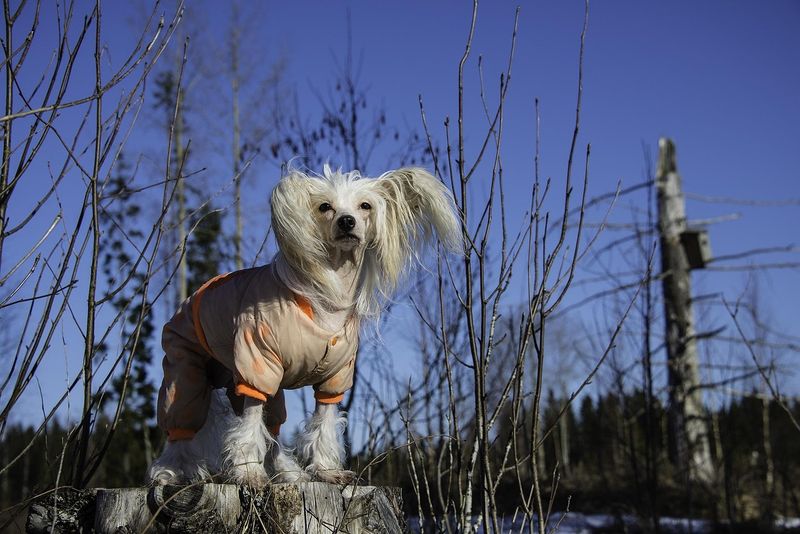
Nearly naked by nature, these unique-looking dogs are essentially wearing their birthday suit year-round. The hairless variety has exposed skin that can quickly become irritated or frostbitten in cold conditions.
Even the “powderpuff” variety with its silky coat needs extra protection. Their thin frames and minimal natural covering make them especially vulnerable to winter’s chill.
4. Whippets: Sleek Racers Who Need Sweaters
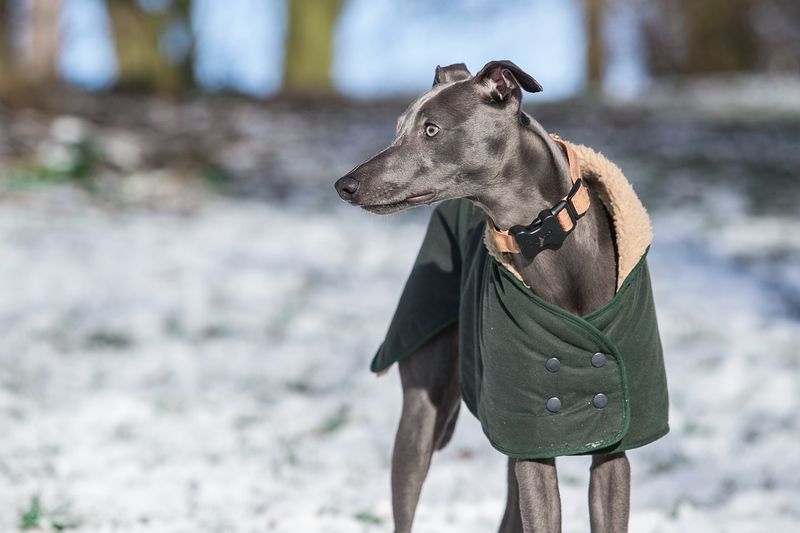
Lightning-fast on the track but woefully unprepared for winter! With their ultra-low body fat and short, fine coats, Whippets practically telegraph their discomfort in cold weather through visible shivering.
Their deep chests and exposed underbellies make them particularly vulnerable to ground chill. Despite their athletic build, these gentle speedsters need proper winter gear before venturing outdoors.
5. Boston Terriers: Dapper Dressers Needing Winter Wardrobes
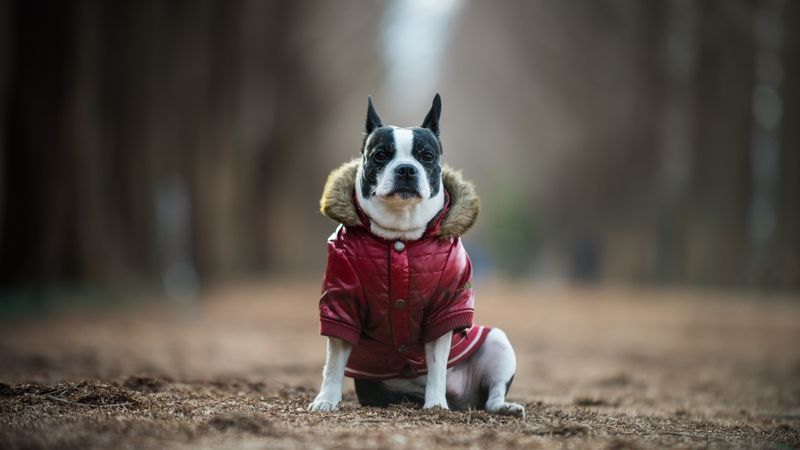
Don’t let their tuxedo-like markings fool you – these dapper dogs aren’t dressed for winter parties! Their short, fine coats provide minimal insulation, while their compact bodies lose heat quickly in chilly conditions.
Their prominent eyes are also vulnerable to cold winds. Known for their spunky attitudes, Boston Terriers often need their enthusiasm for outdoor play tempered during cold snaps.
6. Boxers: Muscular Athletes With Cold Intolerance
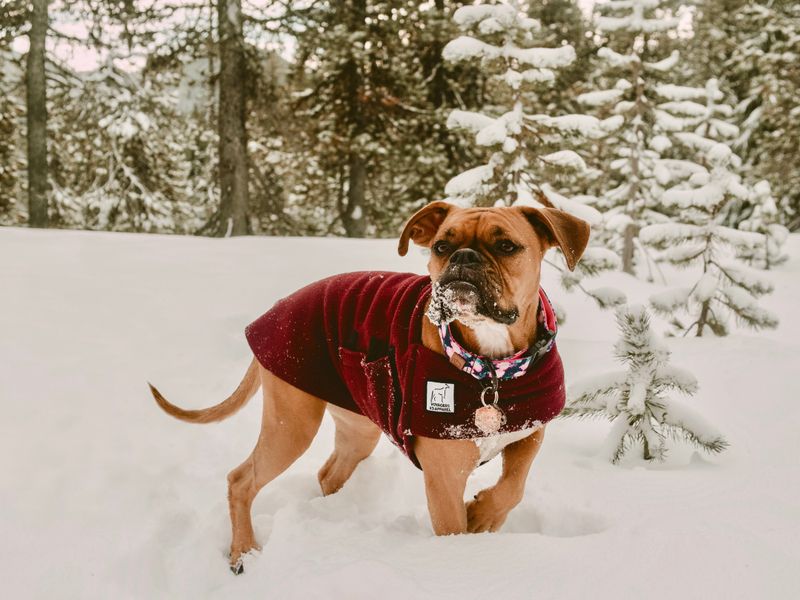
Beneath all that muscle, boxers have surprisingly little insulation! With short, sleek coats offering minimal protection against winter’s chill, these dogs are vulnerable.
Thin ear leather is especially prone to frostbite. Always full of energy, they might not show signs of discomfort until it’s too late, making it crucial to monitor them closely during winter activities.
7. French Bulldogs: Breathing Troubles In Frigid Air
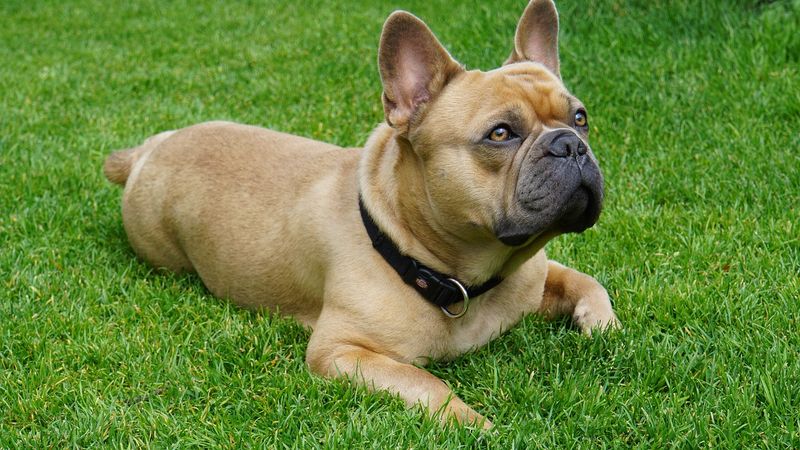
Those adorable bat ears? Perfect radiators for losing body heat! Frenchies face a double winter whammy—their short coats provide minimal insulation, while their brachycephalic (flat-faced) structure makes breathing cold air particularly challenging.
Their compact bodies also lose heat quickly. Despite their sturdy appearance, these clownish companions need serious protection from winter’s chill.
8. Toy Poodles: Sophisticated But Sensitive
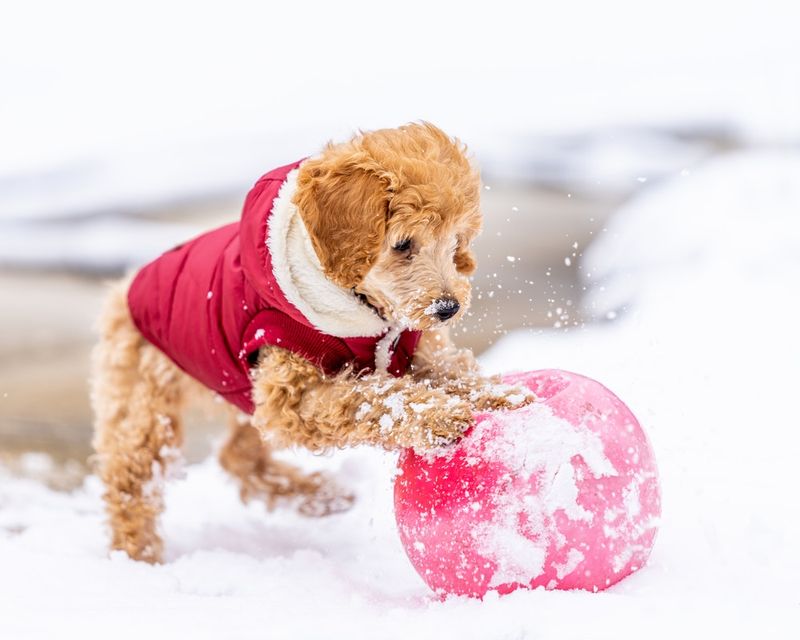
Beneath those fancy haircuts, Toy Poodles are surprisingly delicate! While their curly coats offer some insulation, their tiny size causes them to lose body heat quickly in the cold.
Slender legs and fine bones make them especially vulnerable to chilly surfaces. Despite their intelligent, dignified demeanor, these sophisticated pups need practical winter protection, like booties for icy walks.
9. Dachshunds: Low-Riders At High Risk
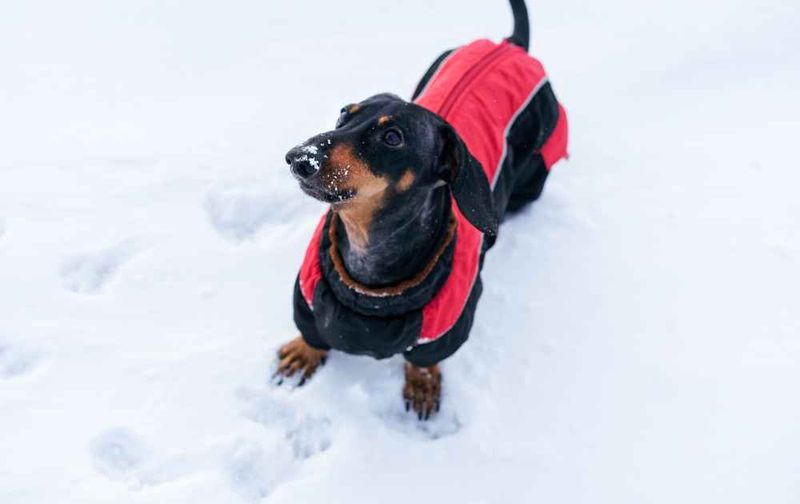
Their belly-scraping design puts these sausage-shaped pups at special risk! Dachshunds’ long, low bodies mean their undersides are constantly exposed to cold ground, snow, and ice.
While some have thicker coats, their minimal ground clearance creates unique winter challenges. Those short legs mean even moderate snow can become an impassable barrier, making winter potty breaks particularly challenging.
10. Beagles: Hunting Heritage Doesn’t Equal Winter Hardiness
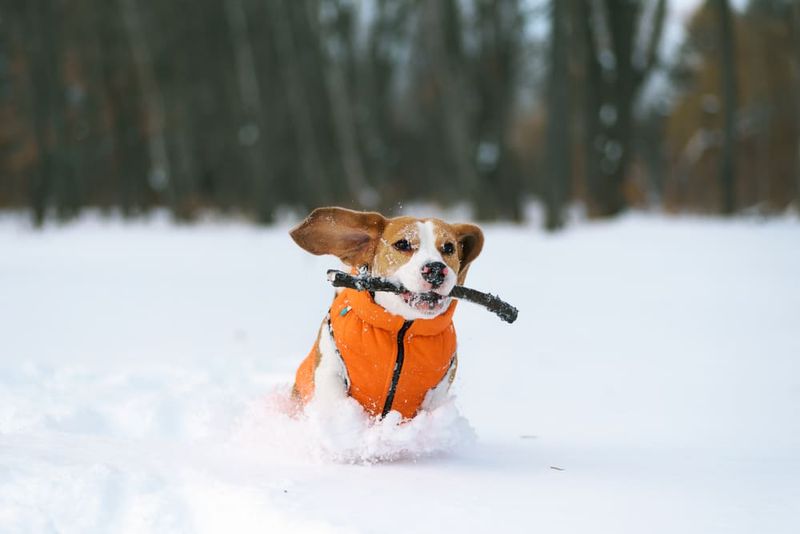
Floppy ears catching frostbite? It’s more common than you’d think! Despite their hunting background, Beagles’ moderate coats and medium size don’t provide adequate protection in truly cold conditions.
Their curious noses often lead them into snow drifts they’re not equipped to handle. These scent-driven pups need careful monitoring during winter, as their enthusiasm for following smells can override their cold sensitivity.
11. Shih Tzus: Royal Ancestry Requiring Royal Treatment
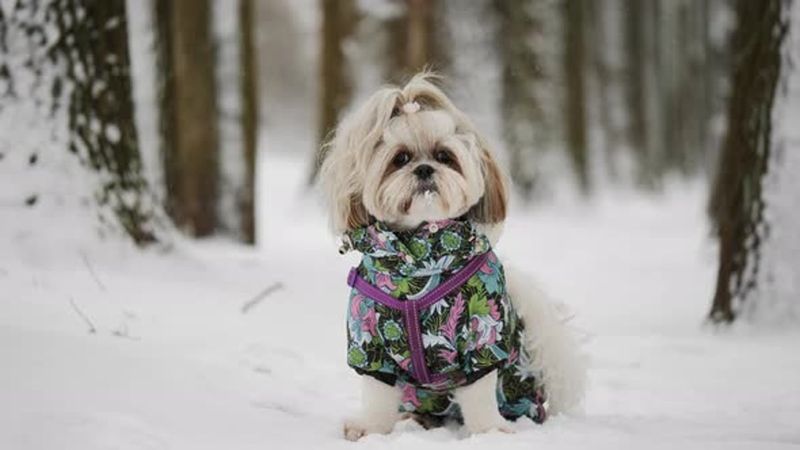
Those flowing locks weren’t designed for snow banks! While their long coats seem warm, Shih Tzus’ hair is more similar to human hair than insulating fur, offering limited protection against serious cold.
Snow easily clings to their low-hanging coats, creating uncomfortable ice balls. These palace-bred companions need their winter exposure carefully managed, with regular coat maintenance to prevent painful matting from winter moisture.
12. Pugs: Flat-Faced Freezers
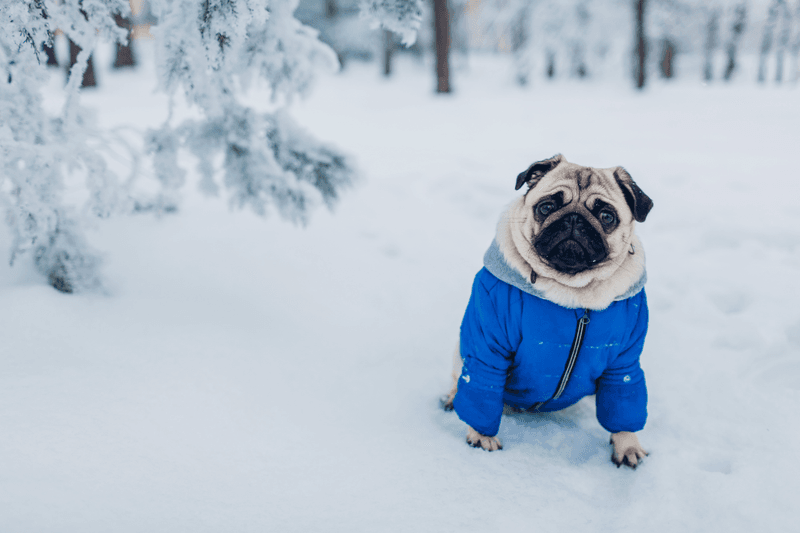
Cold air is extra harsh on squished snouts! Pugs’ brachycephalic breathing structure makes frigid air particularly difficult and potentially dangerous for them to process.
Their short coats and compact bodies retain little heat in winter conditions. These ancient companions may have royal heritage, but they need modern winter protection, including limited exposure to truly cold temperatures.
13. Basset Hounds: Low And Slow In Snow
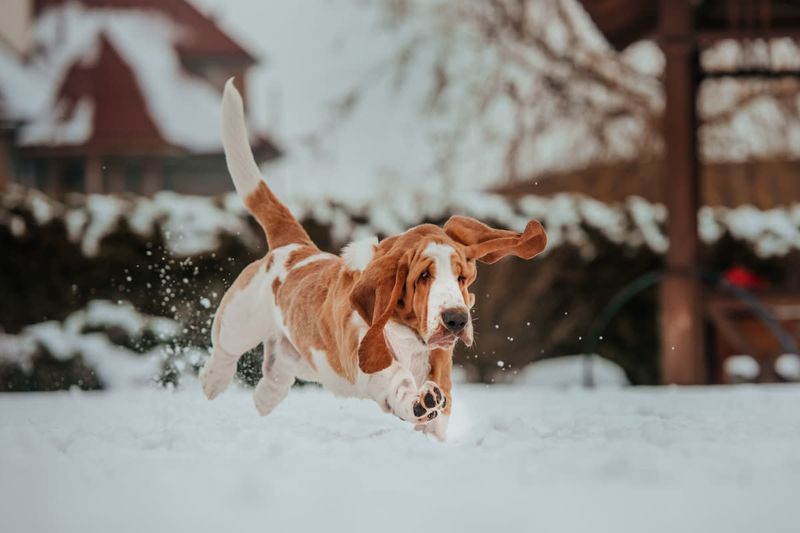
Those velvety ears? They’re perfect targets for frostbite! Basset Hounds’ long, low-hanging ears are especially vulnerable to cold damage, and short legs leave their bellies exposed to snow and ice.
Moderate coats offer some protection, but not enough for long winter outings. Laid-back trackers move too slowly to generate much body heat in the cold.
14. Yorkshire Terriers: Tiny Titans With Minimal Insulation
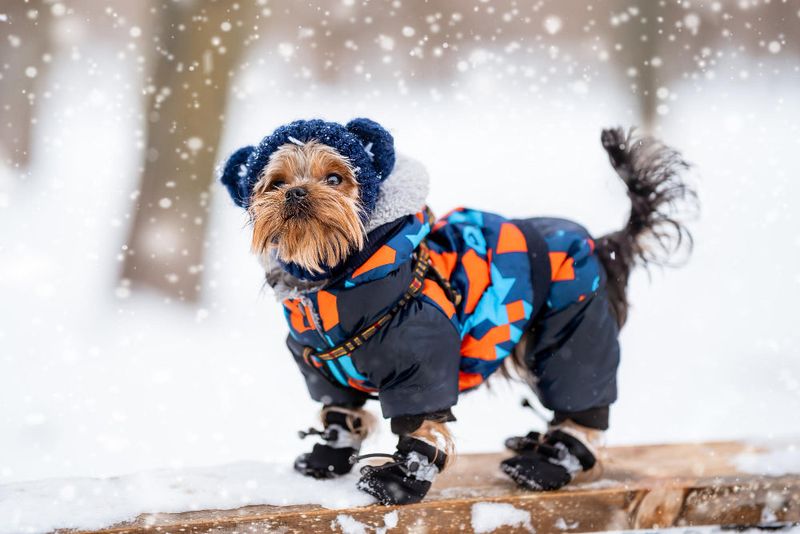
Silky hair might look luxurious but offers little winter protection! Yorkies’ fine, human-like hair provides minimal insulation against cold, while their tiny bodies lose heat at alarming rates.
Their diminutive paws are especially sensitive to icy surfaces. Despite their feisty personalities, these pint-sized pups need serious winter wardrobes and limited exposure to truly cold conditions.

